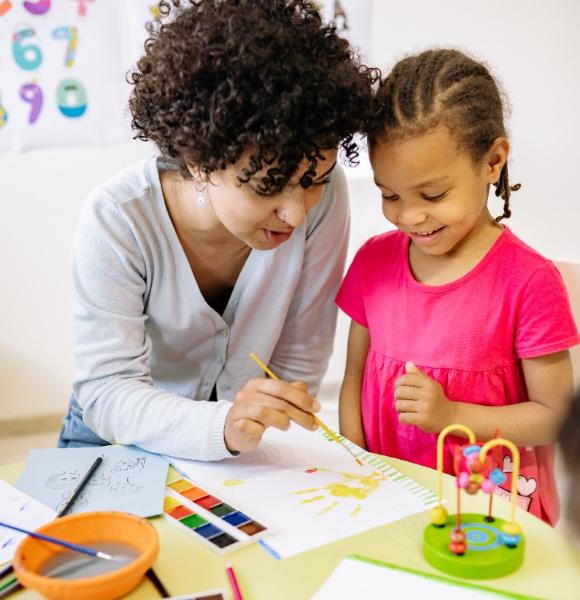
Pairing is the process of associating one stimulus to another. Pairing is commonly referred as rapport building which is essential when working with individuals to learn functional adaptive skills. When working with anyone, it is super important to build a healthy relationship with that person. This can be accomplished by engaging in preferred activities or topics that are of interest to the person receiving services.
Imagine a 5-year-old child who is playing with their toys, laughing, creating a story about how a dinosaur is going to scare away other dinosaurs in the area. Suddenly, an adult figure ends play time and instructs the child to clean up. Following up with additional instructions to non-preferred activities without encountering much reinforcement. This can disrupt the child's relationship with that adult figure. The adult figure may then be associated with "tasks/instructions" and can become an aversive person to the child.
Now imagine the same scenario, but this time, the adult joins in on the play by being a "scared" dinosaur, resulting in cooperative play while simultaneously building rapport by engaging in the preferred activity. The adult can then transition the child to cleaning up after successful pairing.
Note, that when pairing, follow the lead of the individual and let them guide you towards their preferred activity. Don't be afraid to provide learning opportunities when playing to increase language development. Simply make statements that are positive and able to observe, such as, "This ____(activity) is super fun" or "wow your dinosaur has really bright green stripes". As you are playing, you can ask the individual questions about the activity to maximize learning opportunities, such as, "What color are the stripes?". But be sure not to ask too much so you aren’t associated with “too many questions”. Keep play high and interesting and demands low.
It is super important to pair with an individual first to establish yourself as "fun" or to build trust. Once you have successfully paired with the individual with those preferred activities, you can become a generalized reinforcer. You want to pair yourself with as much positive reinforcement as possible - which may include lots of play time - so that you can establish instructional control for when tasks or situations are presented, such as cleaning up.
You know you have successfully paired when the individual is excited to see you and are constantly wanting to play with you or engage with you. In addition, you know you have successfully paired when transitions between non-preferred activities and preferred activities are smooth - it is because they trust you and that you are reinforcing!
